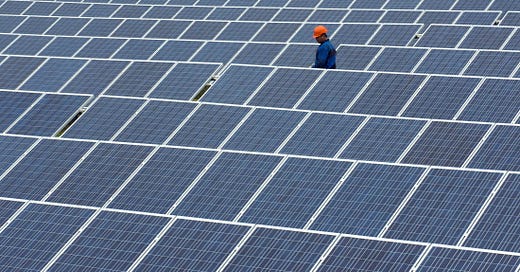Hello,
Tomorrow, the British people find out who their next Prime Minister is going to be. Unless something has gone catastrophically wrong with the modelling and polling, it will be Liz Truss. With her arrival comes a reshuffle of priorities, a flurry of promotions and demotions across the Cabinet, and a new Parliamentary landscape. Top of her in-tray? An energy crisis and escaping inflation, then trying to unify a deeply bruised party. Domestic policy is the priority.
However, foreign policy, approached with insight and wielded with a def touch, influences domestic policy. Truss made multiple China-related pledges throughout the campaign, ranging from Xinjiang to TikTok, that will have a knock-on impact on the British people. Likewise, she will need to settle the score with China-sceptic MPs who lent her votes and support. Per media reporting, some will be rewarded with Government jobs - such as IPAC’s Iain Duncan Smith and the China Research Group’s Tom Tugendhat - although these positions are not as sure as Fleet Street believes. Others will be temporarily placated by the tough rhetoric coming from Team Truss on China, including classifying Beijing as an “official threat” and a promise to cut economic talks.
Truss’s vision for Global Britain will also be under intense scrutiny. During her first 100 days in Downing Street, she will be expected to attend the United Nations General Assembly (UNGA) in New York, with Russia’s invasion of Ukraine hanging heavy over the gathering. Weeks later, China’s 20th National Congress takes place in mid-October, and soon after, Truss may come face to face with President Xi Jinping at the G20 in Indonesia. Meanwhile, the Biden Administration is said to be considering a number of Executive Orders, including one that would restrict US investment in Chinese technology companies and another focusing on TikTok. Each offers a chance for collaboration - but also risks showing up a lack of coherent strategy.
In the City, we draw your attention to the one story that has governed Westminster’s foreign policy circles this week; the long-awaited publication of the United Nation’s report on Xinjiang. Its contents and consequent reaction throughout policymaking circles should matter to FTSE constituents. Finally, we examine perverse incentives and what lessons those pushing for sanctions on Xinjiang solar panelling can learn from the Great Hanoi Rat Massacre of 1902.
**Advert***
Sign up to SOAS China Institute’s Three-Day Course, from the 19-21 September. Join reporters from the Guardian, BBC, the Financial Times and the Wall Street Journal - as well as leading academics - to discuss how public opinion on China is influenced by the press and its impact on government policy.
***Advert***




